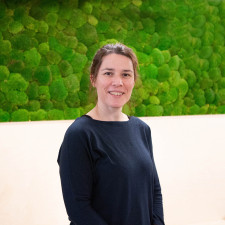Stronger Together
On this page:

Door/By: Max Alvares Vega
Introduction
Every parent wants the best for their family. But it’s not always easy, especially if you have a child with severe or profound intellectual and multiple disabilities (PIMD). We set up the Stronger Together (Sterker Samen) project to support such families. This collaborative initiative launched by the University of Groningen and Hanze University of Applied Sciences, financed by the Netherlands Organisation for Health Research and Development (ZonMw), falls under the Academic Collaborative Centre related to people with PIMD. Our aim is to work alongside families to identify what constitutes quality of life for them and what type of care and support they need, and then to consider how best to establish this care and support.
Subprojects
In subproject 1, we will use an online questionnaire to find out what constitutes a family’s quality of life and which factors play a role. We will also conduct a number of interviews with families to gain an understanding of families’ exact healthcare and support needs. Families will only be asked to complete one set of questionnaires and will be invited to consider participating in just one interview. Some family members will be asked to complete more questionnaires than others, but completion will not take more than around 80 minutes in total. It is not necessary to complete all the questionnaires in one sitting. The interview, which is optional, will last between 60 and 90 minutes.
In subproject 2, we will work together with families and healthcare professionals to develop products designed to improve their family’s quality of life, based on the information gathered during subproject 1. The families and healthcare professionals will also be consulted on the format that these products should take. They could, for example, include training sessions, a website or a family ‘toolbox’.
In subproject 3, we will test and evaluate the new products together with a number of families before they are put into use at the national level.
Benefits to practice
We will organise meetings across the Netherlands at which parents, researchers and healthcare professionals can share their knowledge and experiences. The knowledge derived from this research project will help healthcare professionals to arrive at a better understanding of how best to support families. And they will have products they can use to help families improve their quality of life.
Who are we looking for?
For this research project, we are looking for families with a child with severe or profound intellectual and multiple disabilities (PIMD) aged between 0 and 30 years and with an estimated IQ score of 25 or lower. Since IQ is difficult to measure in such cases, their intelligence may be expressed in terms of a maximum developmental age of 24 months. In addition, we are looking for young people with severe or profound motor disabilities such that their mobility and arm/hand function is extremely limited. It may be that they also suffer from additional health problems such as epilepsy, scoliosis or constipation. It does not matter whether your child lives at home or not; we are actually interested in finding out about a range of different family situations.
How can I participate?
There are various options. You can offer to complete the online questionnaires (and to be interviewed if you feel comfortable doing so). Another option is to use your experience as someone with practical knowledge gained from day-to-day involvement to help us create products and/or to support the project in another way. You are also welcome to subscribe to the newsletter.
How do I sign up and/or get more information?
To sign up as a participant or interested party and/or to subscribe to the newsletter, please visit tinyurl.com/sterkersamen. If you have questions, you can always send a message to sterkersamen.emb@rug.nl. You can also find us on Facebook (Sterker Samen EMB) and Twitter (@SterkerSamenEMB).

About the researchers
What is your role within the Academic Collaborative Centre related to people with PIMD?
I am a PhD student affiliated to the University of Groningen and am involved in the Stronger Together (Sterker Samen) project, the aim of which is to improve the quality of life of families with children with PIMD. To this end, we will first seek to establish what constitutes a family’s quality of life and which factors influence that quality of life, as well as finding out what the care and support needs of these families are. We will then take the insights gained and work together with families and healthcare professionals to create products designed to improve a family’s quality of life.
What do you hope to achieve?
I will feel that I have succeeded if our research actually leads to a positive, lasting improvement in the lives of families among our target group. I am also interested in gaining a deeper understanding of what ‘quality of life’ actually is and how it means different things to different people.

Nicole Luitwieler
What is your role within the Academic Collaborative Centre related to people with PIMD?
I am a PhD student affiliated to the Stronger Together (Samen Sterker) research project, which is a collaborative venture between the University of Groningen and Hanze University of Applied Sciences, funded by the Netherlands Organisation for Health Research and Development (ZonMw). The aim of the project is to improve the resilience and wellbeing of families with a child (aged 0-30) with PIMD.
What do you hope to achieve?
My goal is to increase insight into the factors that influence the wellbeing of families with a child with PIMD in order to improve the support offered to these families. I also hope to help make this a project in which scientists and those with practical knowledge gained from day-to-day involvement can work together as equals.
